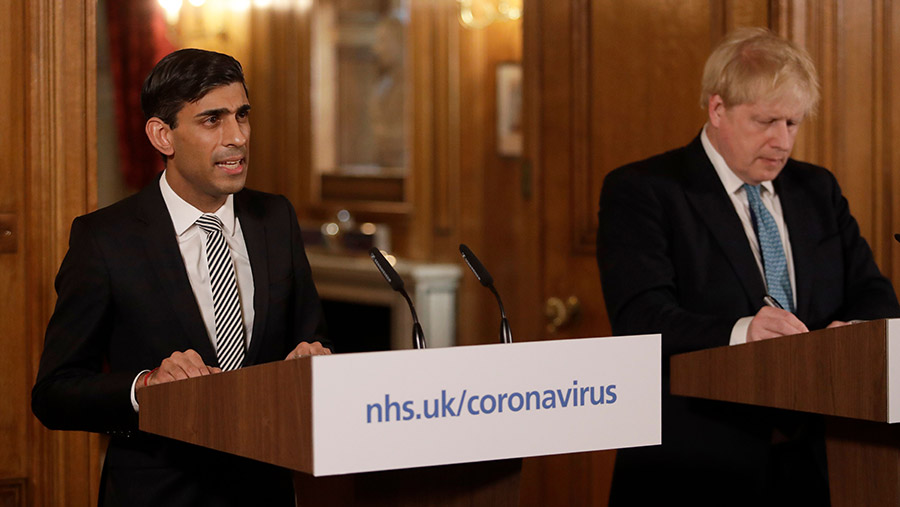Coronavirus: Government to pay wages to avoid job losses
 © MATT DUNHAM/POOL/EPA-EFE/Shutterstock
© MATT DUNHAM/POOL/EPA-EFE/Shutterstock The Chancellor has unveiled additional wide-ranging new measures to support businesses and individuals cope with the financial impact of coronavirus.
After the Prime Minister Boris Johnson revealed that the goverment would be ordering the shutdown of pubs and restaurants, the Chancellor, Rishi Sunak, unveiled an enormous package of measures that would help all businesses cope.
See also: Coronavirus: Farmers, farmworkers and vets on key workers list
Here is a summary of what will be introduced in the weeks ahead.
1. Introduction of a Coronavirus Job Retention Scheme
This will pay 80% of salaries – up to a total of £2,500/month – of any employed person whose job is under threat. The measure will be backdated to 1 March and will initially be implemented for three months.
This will be a grant, not a loan.
Rishi Sunak said: “That means workers in any part of the UK can retain their job and be paid at least 80% of their salary.”
He said there was no limit to the total amount of government funding that would be available for this scheme.
HMRC are ‘working round the clock’ to implement this, he said, and money should start arriving in bank accounts by the end of April.
2. Further cashflow support for businesses
Mr Sunak said he would be deferring the next quarter of VAT payments so that businesses would not have to pay the VAT on any goods between now and the end of June.
The deferred payments will have until the end of the financial year to settle the deferred payments.
This is a £30bn cash injection for employers worth 1.5% of GDP, the Chancellor said.
3. Increased sick pay and benefit payments
Self-employed people will now be able to claim universal credit equivalent to the statutory sick pay of workers.
This is because the Treasury is increasing Universal Credit payments by £1,000/year for the next 12 months.
Working tax credits are also being increased by the same amount, again for one year.
Previously reported measures to remove the income floor for universal credit mean any self-employed person will now be able to claim the benefit.
See also: Self-employed access to benefits eased due to coronavirus
They will also be able to claim it from the first date of illness, rather than day eight, and apply online rather than having to attend a job centre.
4. The Coronavirus Business Interruption Loan
This will now be interest free for 12 months, not six months as previously announced.
This is a scheme that will allow small and medium-sized businesses to borrow up to £5m to help pay bills to allow operations to continue.
The Chancellor said that these loans would be available from Monday (23 March).
Businesses will be able to access them by speaking directly to their bank.
In the coming days the government will be launching a widespread advertising campaign to provide further information on all the support measures.
